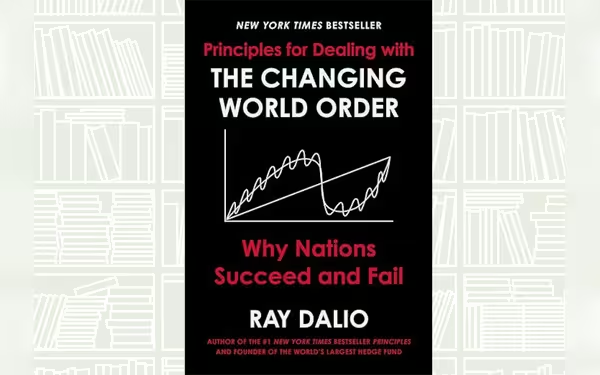Thursday, November 7, 2024 04:28 PM
Ray Dalio's Insights on Global Power Dynamics
- Dalio outlines principles governing global transitions.
- Book analyzes wealth distribution and local conflicts.
- Critics urge deeper engagement with contemporary issues.
 Image Credits: arabnewspk
Image Credits: arabnewspkExplore Ray Dalio's principles on global power dynamics and their relevance in today's changing world.
In an era where the world is constantly evolving, understanding the forces that shape global power dynamics is more crucial than ever. The book “Principles for Dealing With the Changing World Order: Why Nations Succeed and Fail,” authored by Ray Dalio, delves into the historical patterns that have influenced the rise and fall of nations. Published in 2021, this insightful work offers readers a framework to comprehend the shifting geopolitical landscape, making it a significant read for anyone interested in global affairs.
Ray Dalio, an esteemed American investor and the founder of Bridgewater Associates, draws from his extensive experience in finance to explore economic cycles, political systems, and the historical trajectories of empires. He meticulously outlines several principles that govern these transitions, emphasizing the intricate relationship between economic and cultural factors. One of the standout features of Dalio's writing is his ability to present complex ideas in a straightforward manner. He breaks down his thoughts into easily digestible sections, making it accessible for readers of all backgrounds.
Throughout the book, Dalio discusses major societal indicators, such as wealth distribution and local conflicts, providing a comprehensive analysis of how these elements interact with global power structures. His analytical approach not only sheds light on past events but also equips readers with the tools to anticipate future developments. In a world increasingly influenced by globalization and technological advancements, Dalio's insights resonate strongly, highlighting the potential for conflict between established powers and emerging nations.
However, it is essential to note that some critics argue that Dalio's perspective may oversimplify the complexities of contemporary geopolitical realities. While his analysis is rooted in historical patterns, the pressing challenges of our time—such as climate change and the rise of artificial intelligence—demand solutions that extend beyond mere historical analogies. This critique invites readers to engage with the material critically and consider the multifaceted nature of global issues.
Overall, “Principles for Dealing With the Changing World Order” has garnered a commendable rating of 4.7 out of 5 from over 7,000 readers, reflecting its impact and relevance. The book not only stimulates critical thinking about the political relations that shape our world but also serves as a valuable resource for policymakers, business leaders, and anyone keen on understanding the forces at play in global affairs. In conclusion, Dalio's blend of historical analysis and personal insights makes this book a must-read for those looking to navigate the complexities of the changing world order. It encourages readers to think deeply about the future and the role they play in it, reminding us that adaptability and resilience are key in an ever-changing landscape.













